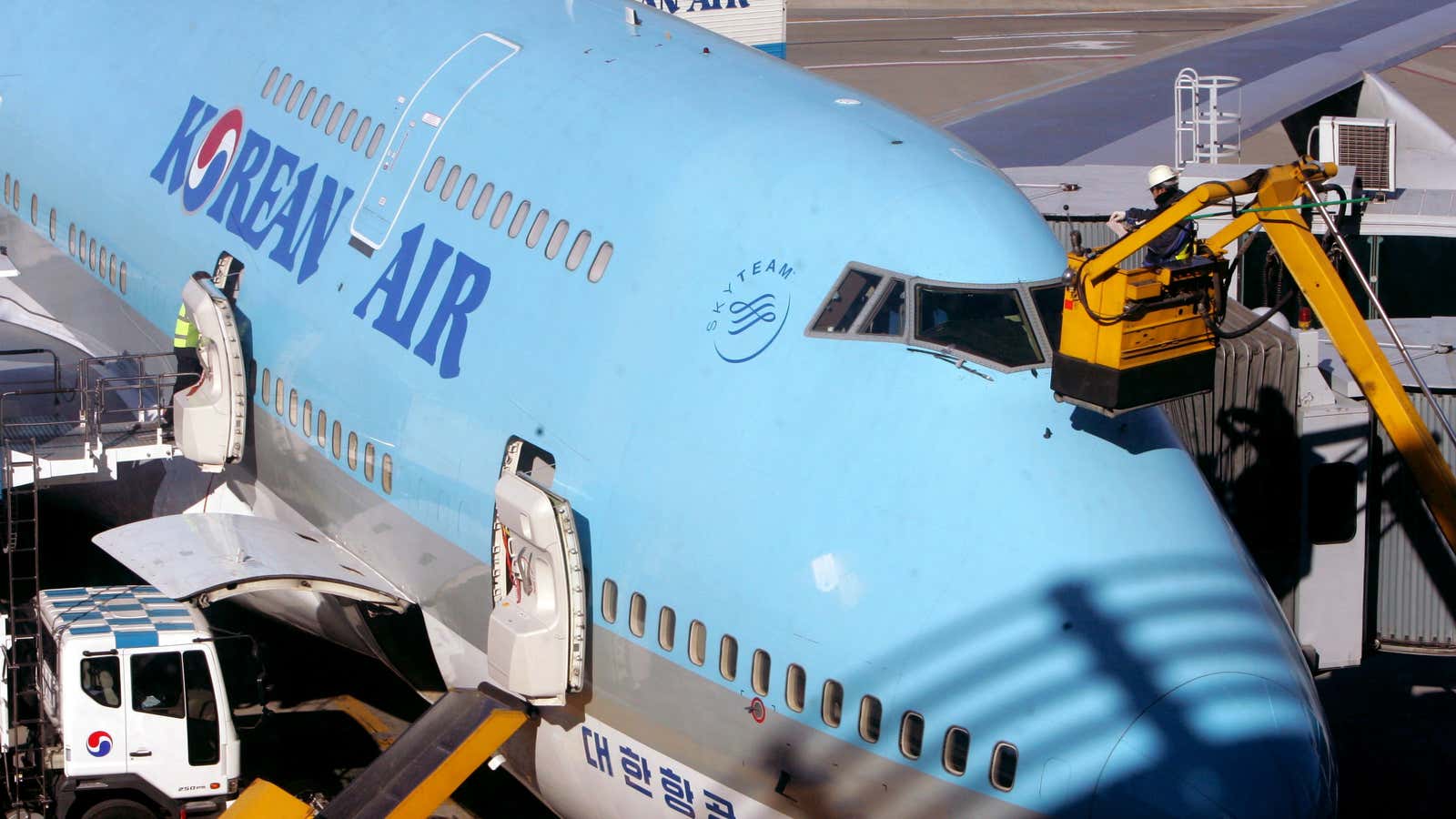Arguments over pay rates are not unusual. But in current negotiations between two pilot unions and Korean Air, the gap between expectations is unusually large. Whereas the airline is proposing a 1.9% pay raise over 2015 levels, the pilots are calling for a somewhat larger hike: 37%, according to the Korea Herald.
Management argues that steep pay hikes make little sense when the airline faces fierce competitors based in China and the Middle East. But those same competitors want more than just passengers. They also want pilots—and are willing to pay more for them.
For years, Chinese airlines have been luring experienced pilots from overseas. In August 2013 the Wall Street Journal reported on US pilots getting offers of roughly double their salaries from airlines based in China. (Foreign pilots at Chinese airlines often get paid significantly more than their Chinese counterparts, which has caused tension at Air China.)
But it isn’t just Western pilots that are being lured. South Korean pilots can earn twice or even three times more at foreign carriers, according to union representatives. Chinese airlines have been tempting them for years with better pay. Last year Korean Air lost 46 pilots to Chinese carriers, up from two in 2014 and seven in 2013, according to the Korea Times. Meanwhile Asiana Airlines, the other major carrier in South Korea, lost 61 pilots to Chinese and other foreign airlines, up from 31 in 2014 and 28 in 2013.
The demand for pilots is strong throughout Asia, and particularly China, thanks to rapidly expanding air route networks serving the region’s burgeoning middle classes. The region will need 216,000 new pilots between 2014 and 2033, according to Boeing forecasts (pdf, p. 33). That’s more than Europe, North America, and Africa combined.
South Korean airlines are struggling to fill the void created by experienced pilots leaving. Asiana in particular can ill afford any mishaps. In April 2015 one of its planes crash-landed at an airport in Hiroshima, Japan, injuring 27 people. That followed a July 2013 accident in San Francisco in which three people died during a bad landing. The pilots were ordered to get more training.
But with cushier offers from abroad, unions warn, South Korean pilots will be lured away at a faster pace if the company ignores their demands.
Currently Korean Air is sticking to its offer of a 1.9% raise. About 1,900 union members will vote on that proposal until Feb. 1, but their approval seems unlikely. According to union representative Seo Sang-won, “the unions have developed action plans, including a partial walkout, in preparation for the rejection of the proposal.’’




